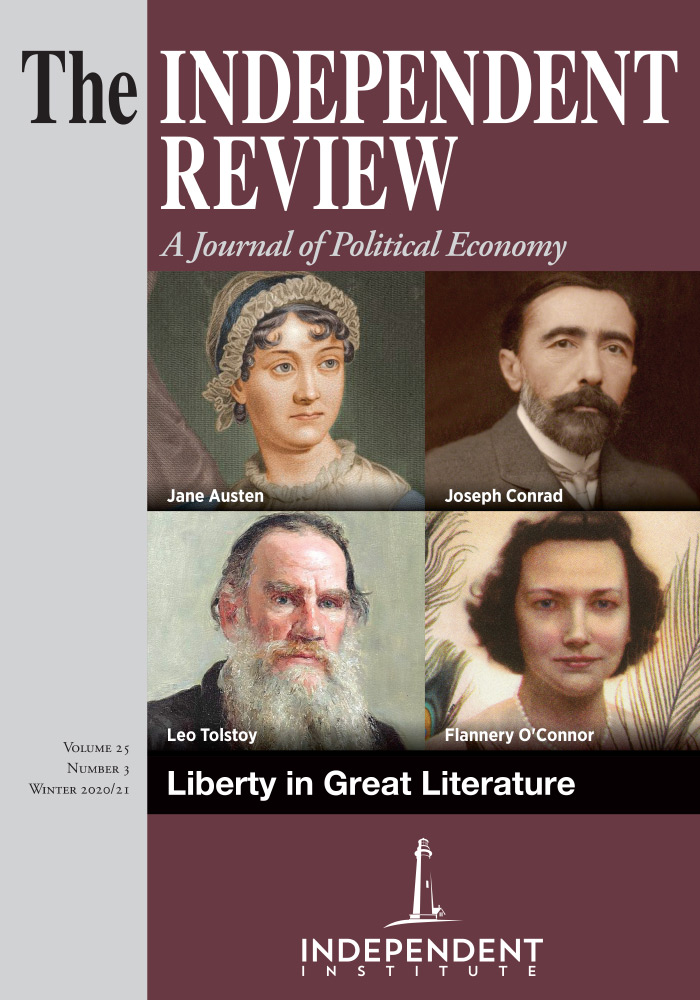Jane Austen’s “country house” novels display a vivid picture of human nature grounded in the classical liberal thought found in Adam Smith’s Theory of Moral Sentiments (1759). Not only do their characters teach us about the virtues we should practice and the vices we should avoid in order to lead fulfilling lives, but their story lines give us a glimpse into the types of economic arrangements that recognize the dignity of all and further promote human flourishing.
Michelle Albert Vachris is professor of management, business, and economics in the Department of Management, Business, and Economics at Virginia Wesleyan University.
Cecil E. Bohanon is a professor of economics at Ball State University.
| Other Independent Review articles by Michelle Albert Vachris | |
| Summer 2024 | Show and Biz: The Market Economy in TV Series and Popular Culture (2000–2020) |
| Winter 2020/21 | Philanthropic Exchange in Ralph Ellison’s Invisible Man |
| Winter 2018/19 | Dynamism as a Bump on the Road to Crony Capitalism? |
| Other Independent Review articles by Cecil E. Bohanon | ||
| Summer 2022 | Minds Wide Shut: How the New Fundamentalisms Divide Us | |
| Winter 2021/22 | Steven G. Horwitz: A Tribute | |
| Winter 2020/21 | Philanthropic Exchange in Ralph Ellison’s Invisible Man | |
| [View All (8)] | ||









